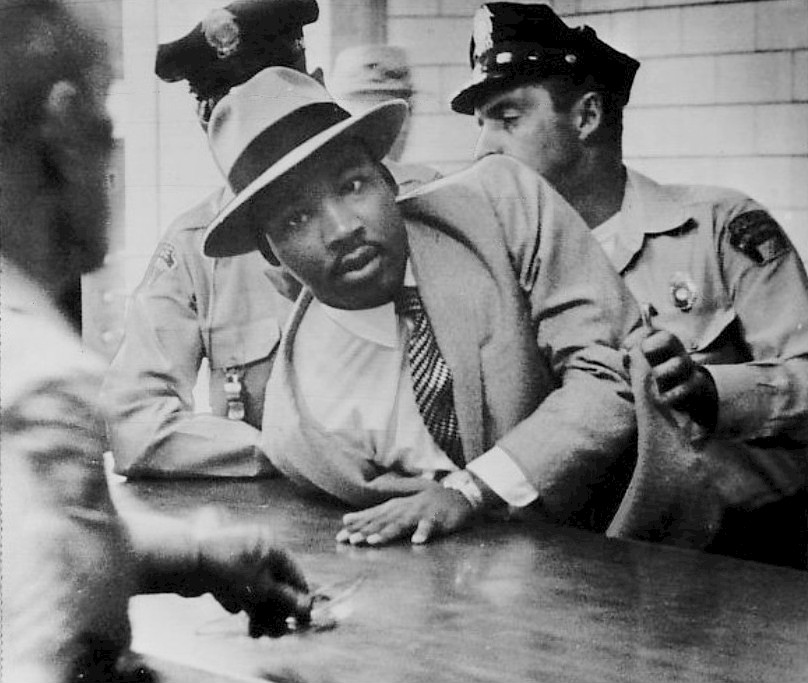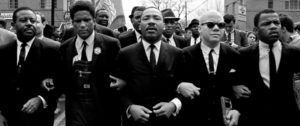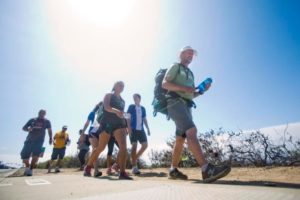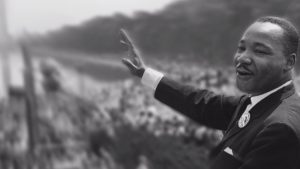By Dr. Kit Danley
50th Anniversary Commemoration of the Assassination of Dr. Martin Luther King, Jr. “Continuing the Sacrifice for our Future”

Our family and our ministry have lived embedded in a multi-ethnic/largely Latino community for almost 40 years. Though we have lived in communities of color the better parts of our lives, it takes white people longer to see racism. But once you see, you never stop seeing.
I think the words are the worst… the dehumanizing words you hear people say –Christian people – about those you love.
And violence…
In an infamous case, a young man in our ministry named Julio Valerio took 26 bullets from the police. He was defending his mom against an abusive step father – he had a kitchen knife.
There was no justice and for years there was no peace in our community.
SB1070, an internationally-watched anti-immigrant bill ignited nativist extremists – it legally allowed racial profiling. All but one element in the legislation was found unconstitutional by the Supreme Court, but it placed Arizona back in the lead for its politics of fear and division. In those days, we were reminded of when our state long resisted creating a holiday honoring Martin Luther King Jr.
In all of this, the legacy of the Civil Rights movement, the black church and the words and prophetic leadership of Dr. King are rails [for today’s activists] to run on, theologically and practically. Their understanding of scripture gives us moorings. Passages like Acts 10:34-35, where the apostle Peter was directed by God to dismantle the dividing walls between Jew and Gentile. Peter says: now I am certain that God treats all people alike. God is pleased with everyone who worships him and does right, no matter what nation they come from.
Dr. King believed the church could inspire the world through a genuine revolution of values, decry the spirit of white supremacy which was ultimately demonic and call for unconditional love for all men. Courage resulted; people wore signs that said, “I Am a Man”… More than a political slogan, these signs were a theological manifesto. Each sign declared that the wearers did not believe the rhetoric and propaganda used against them. They refused to believe they were less than. In marches today, immigrants carry similar signs that read, “I am a human being” and “No human being is illegal”. God treats all people alike, all are worthy of dignity with inherent human rights, all are made in the image of God.

Is this the message of the church today? That it is possible to bring transformation to systemic racism through a radical and powerful love for all human beings? It is the beloved community that King inspired to understand the depth and breadth of personal sacrifice and steadfast moral courage required to declare eternal hostility to structural racism. Where is the church today? Where is its eternal hostility?
Our reflections are timely. 2018 is eerily like 1968. Fifty years after King’s assassination, struggles for racial equality appear as acute now as they did then. We can’t quite put our finger on why racism is so pernicious. Aren’t we the “post-racial” nation of the election of the first black president, Barack Obama? Or are we 1968, after all, with Charlottesville, the deaths of Trayvon Martin, Eric Garner, Michael Brown, Philando Castelle, Tamir Rice, Freddie Gray, Stephon Clarke, urban uprisings in city after city, the hard, important work of “Black Lives Matter” teaching people to march again…
In a time when hundreds of thousands of immigrants face deportation to unstable and violent countries, when Puerto Ricans languish without power, when mass incarceration has weaponized the criminal justice system and when the leaders of America malign entire nations and their people, the liberating message of Dr. King, the black church and Christ himself are needed as much now as during the Civil Rights movement.

Not long ago, I walked with Christians on the “El Camino del Inmigrante”, 150 miles for eleven days, from Tijuana to South Central L.A. We were bringing attention to the injustices faced by immigrants today. It was like Abraham Heschel said, “I was praying with my feet”. This walk was reminiscent of the role the black church played historically in response to the pain of the people. It was bold and celebratory, a community arising from trust in God’s promises of his very presence in the struggle for justice. We had teach-ins at night, we sang songs, we prayed and we heard the stories of the people. We were practicing a way of thinking, God prevailing over all principalities and powers, a deeper Christian vision of God’s promises. This trust animates our action and solidarity with one another as we strive for justice NOW.
In April 1967, Dr. King preached on the “fierce urgency of now”. We must head these words. Here is a bit of his sermon:
“These are revolutionary times. It is a sad fact that, because of comfort, complacency, a morbid fear of [enemies] and our proneness to adjust to injustice, we have now become the anti-revolutionaries… Our only hope today lies in our ability to recapture the revolutionary spirit and go out into a sometimes hostile world declaring eternal hostility to poverty and racism.
With this powerful commitment we shall boldly challenge the status quo and unjust mores. A genuine revolution of values means just that. This call for a world-wide fellowship that lifts neighborly concern beyond one’s tribe, race, class and nation is in reality a call for an all-embracing and unconditional love for all men… When I speak of love I am not speaking of some sentimental and weak response. I am speaking of that force that is the supreme unifying principle of life. Love is somehow the key that unlocks the door which leads to ultimate reality … beautifully summed up in John’s first epistle:
…love each other, because love is from God, and everyone who loves is born from God and knows God. The person who doesn’t love does not know God, because God is love. If we love one another God dwells in us, and his love is perfected in us.

Let us hope that this spirit will become the order of the day. We can no longer afford to worship the god of hate or bow before the altar of retaliation. The oceans of history are made turbulent by the ever-rising tides of hate. History is cluttered with the wreckage of nations and individuals that pursued this self-defeating path of hate.
We are now faced with the fact that tomorrow is today. We are confronted with the fierce urgency of now. In this unfolding conundrum of life and history there is such a thing as being too late. Procrastination is still the thief of time. Life often leaves us standing bare, naked and dejected with a lost opportunity. We may cry out desperately for time to pause in her passage, but time is deaf to every plea and rushes on. Over the bleached bones and jumbled residue of numerous civilizations are written the pathetic words: “Too late.”
There is an invisible book of life that faithfully records our vigilance or our neglect. “The moving finger writes, and having writ moves on…” We must move past indecision to action. We must find new ways to speak for peace and justice throughout the world — a world that borders on our doors. If we do not act we shall surely be dragged down the long dark and shameful corridors of time reserved for those who possess power without compassion, might without morality, and strength without sight.
Now let us begin. Now let us rededicate ourselves to the long and bitter — but beautiful — struggle for a new world. This is the calling of the sons of God, and our brothers wait eagerly for our response. Shall we say the odds are too great? Shall we tell them the struggle is too hard? Will our message be that the forces of American life militate against their arrival as full men, and we send our deepest regrets? Or will there be another message, of longing, of hope, of solidarity with their yearnings, of commitment to their cause, whatever the cost? The choice is ours, and though we might prefer it otherwise we must choose in this crucial moment of human history.”

